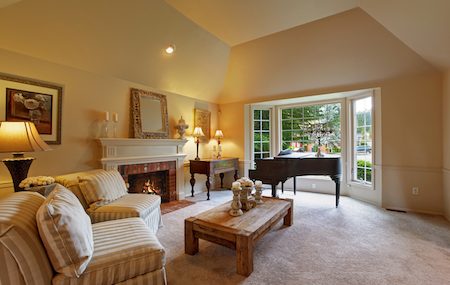Thinking of buying a new piano? Did you know room placement – where you place your piano – is equally as important as the piano you purchase?
If you place your piano in the right spot in your home, it greatly impacts sound quality. It also gives you better performance overall. And if your piano is happy with the conditions, it will increase playability and longevity for years to come.
Before we talk about what you should do, it’s worth mentioning what you shouldn’t do.
Don’t do these things with your piano placement
Because pianos are sensitive to the environment, it’s important to place them where they won’t be subjected to direct sunlight or other elements that can change the overall structure of the instrument. Even a few hours of direct sunlight can cause wood to heat up and start to expand. It can dry out the soundboard, weaken joints and connections, and cause the outside to fade. If direct sunlight is unavoidable, add in shades or drapery and keep them closed during the brightest portion of the day.
Likewise, a steady stream of cold or heated air can have the same effect as direct sunlight. Never place your piano near a window, or near a register or vent. This can cause drastic fluctuations in temperature over a short period of time, and alter the internal parts so severely they’ll need replacing.
Good room placement includes these things
Most people place a piano where it fits best in a room, given their furniture placement. It’s a good idea to rethink it before you bring your piano home, to ensure good performance.
For example, if you place a piano in the central hub of your home, will it interfere with other household activities? Will your child be able to practice if others are doing homework? Will practice seem like a chore, or will it be a pleasant experience?
Playing should not only sound good to those who are listening, but also help the one playing develop a good ear for music. Carpet will help mute the sound, whereas hardwood provides a deeper, fuller sound.
Also, remember your piano isn’t another piece of furniture, designed to hold things for storage. Placing objects on or near your piano can damage it, both inside and out.
Trying to decide what piano to buy? Wondering about room placement, and where your new instrument will sound its best? We can help. Stop by today and we’ll answer all your questions, and help you make the perfect choice for your home.


